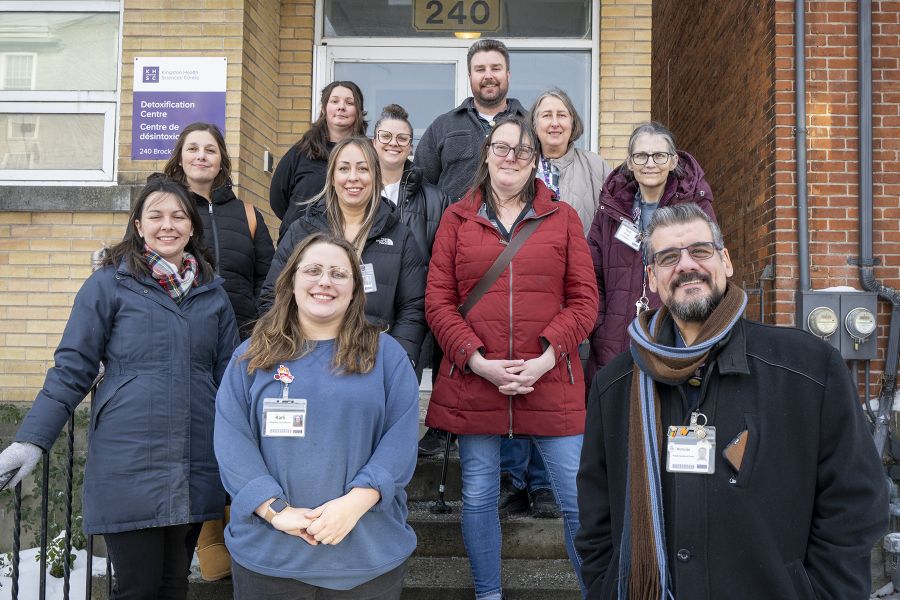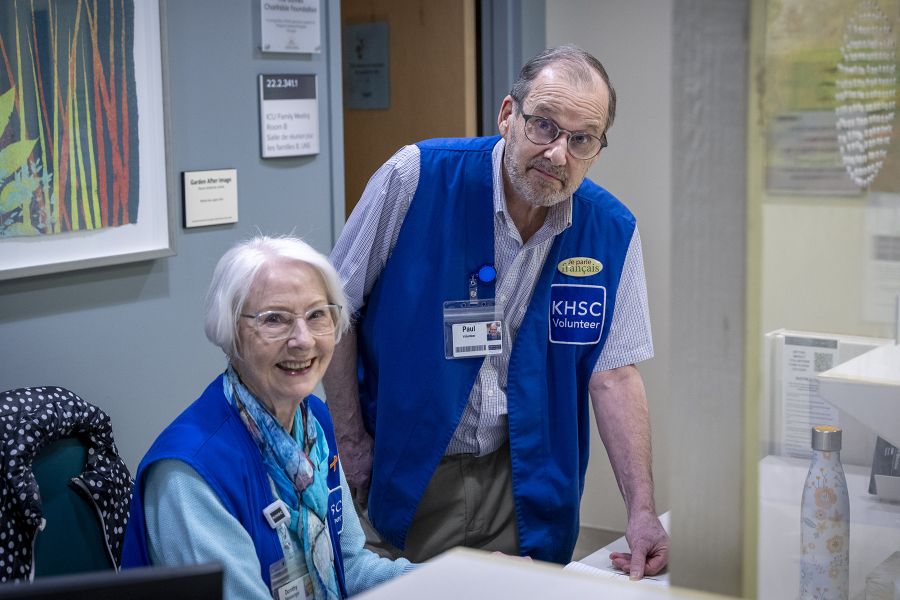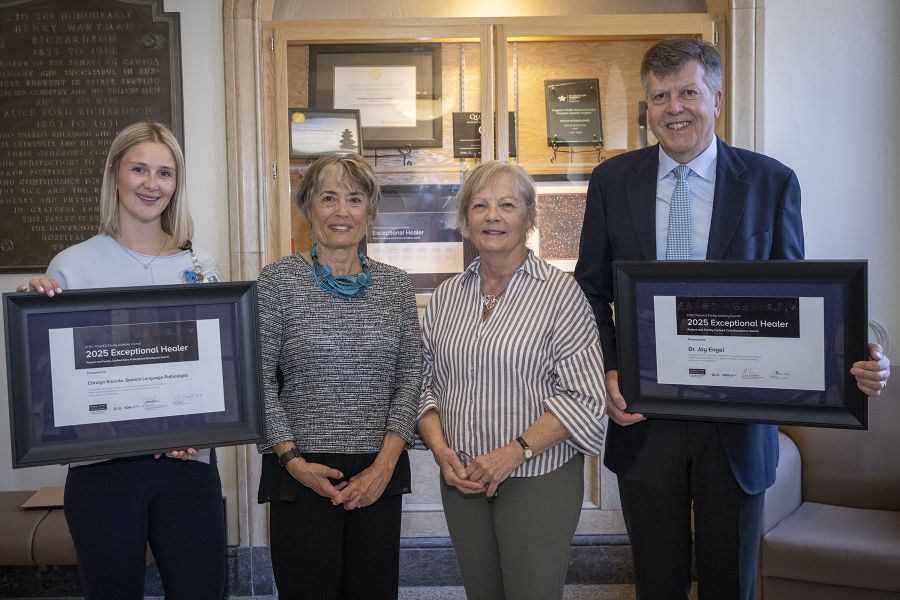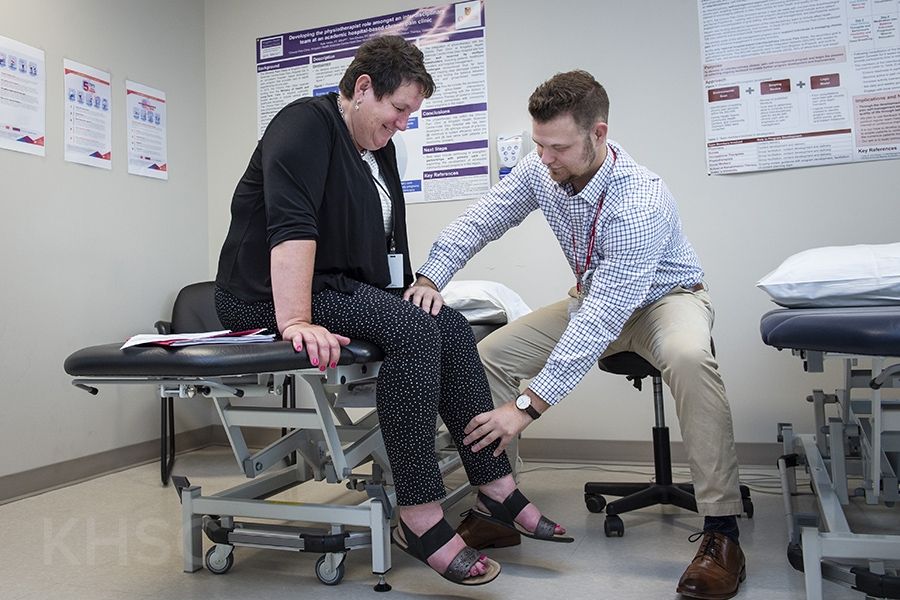
The worlds of physiotherapy and psychology might seem unrelated. However, one physiotherapist at Kingston Health Sciences Centre (KHSC) wants to find out if blending the two fields can lead to better patient care.
Kyle Vader has worked in the Chronic Pain Clinic at the Hotel Dieu Hospital site of KHSC since 2016, and knows first-hand that the role of a physiotherapist is much more than simply coaching patients through physical movements.
“As physiotherapists, we spend a lot of time challenging our patients to do things that might be outside of their comfort zone physically, especially if they are living with chronic pain,” says Kyle. “We build connections with people during some vulnerable moments.”
Many patients who are living with arthritis and chronic pain experience kinesiophobia, a fear of movement, in addition to negative thoughts about their pain. This can have an adverse effect not only on recovery, but also on a patient’s ability to engage in physical activity even after their formal physical therapy is complete.
“In chronic pain management, we know that only focusing on joints, ligaments and tissues isn’t the answer,” explains Kyle. “I started wondering how we could integrate psychology into our day-to-day work, and if adding techniques like cognitive behavioral therapy to a patient’s care plan can make their physical therapy more effective.”
Like many other staff members at KHSC, Kyle has had opportunities to participate in teaching, education and clinical research over the course of his career. He will begin a PhD in the Rehabilitation Science Program at Queen’s University this September, and recently received a scholarship from the Canadian Institutes of Health Research to support a research project of his own. Working with Dr. Jordan Miller and Dr. Dean Tripp at Queen’s University, Kyle will explore the emerging concept of blending psychology-based techniques with physical therapy to improve patient outcomes.
“Combining psychological and physical interventions is long overdue and under recognized in healthcare where it happens,” says Dr. Dean Tripp. “This research is part of a growing trend towards providing more comprehensive care, where care happens instead of having patients chase after it.”
“This has been a really collaborative effort with many different professionals at the School of Rehabilitation Therapy, the Department of Psychology, and other disciplines like occupational therapy, social work, medicine and nursing,” says Kyle. “I purposefully sought out this project because it requires an interprofessional and team-based approach.”
While we won’t know the results of the research until his project wraps up, Kyle hopes that this work will provide allied-health professionals with more opportunities to expand their skill set to include some psychology training and ultimately deliver more comprehensive patient care.
“With our aging population, many people are living with arthritis and the chronic pain associated with it,” says Kyle. “If we can better equip healthcare professionals with the skills to enhance their work, it translates to better outcomes and better care for our patients.”
Gallery
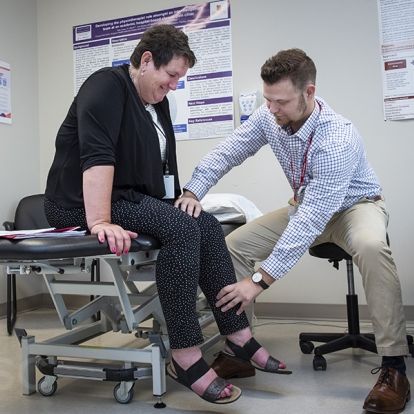
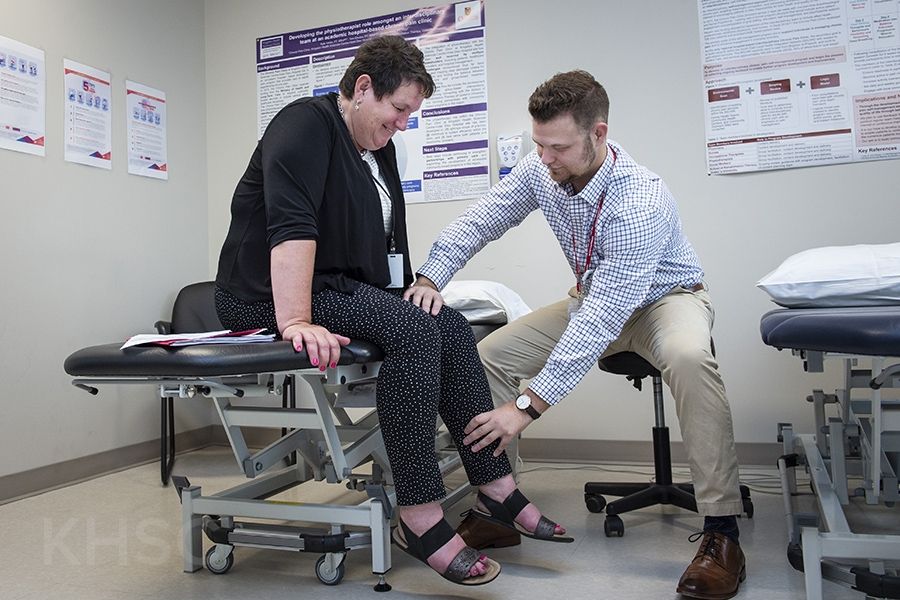
Kyle hopes that this work will provide allied-health professionals with more opportunities to expand their skill set and ultimately deliver more comprehensive patient care.

